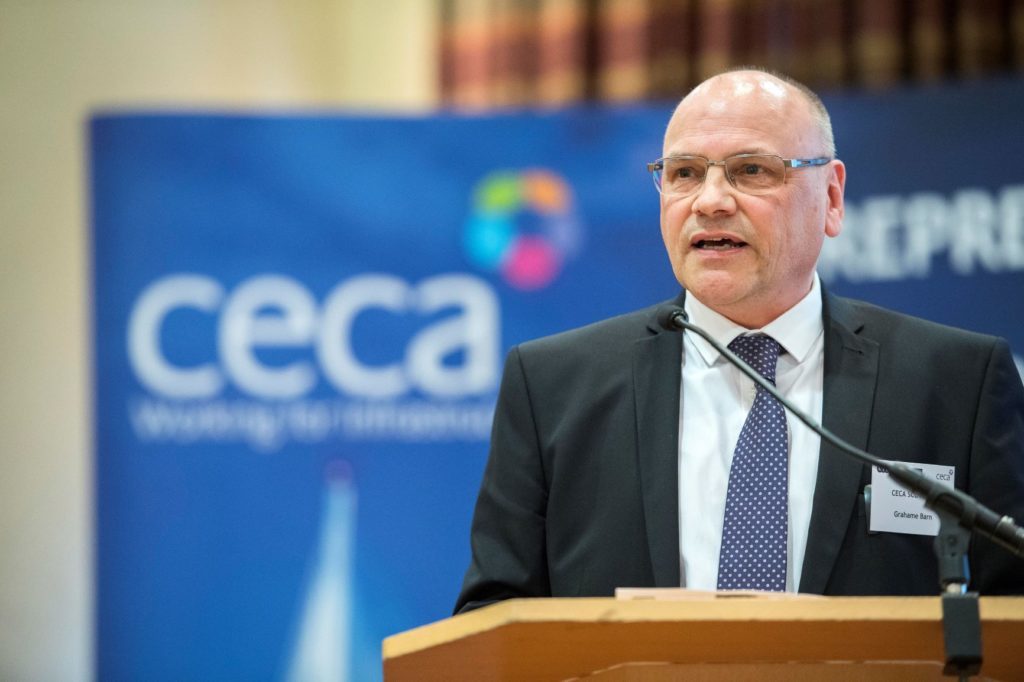
By Grahame Barn, chief executive of CECA Scotland
IN 2021 we will hopefully leave Covid-19 behind us as the vaccine programme is rolled out, but there is absolutely no doubt that the coronavirus legacy will continue even when social distancing is a distant memory.
While how we work may well have changed forever, it remains the case that the challenges facing Scotland’s civil engineering sector today, next year and in the years to come, are very similar to those we faced pre-Covid. Top of that list is the pressing need for a strong, secure, and sustainable pipeline of work; work that is accessible to Scottish-based contractors of all sizes and delivered via sustainable procurement practices and fair contract terms and conditions.
As we look ahead to 2021, CECA Scotland members are hopeful that the many warm words we hear – and will no doubt hear many more of in the run up to the Holyrood elections – are replaced with concrete plans.
This past year had been challenging not just for CECA Scotland members, but for construction. But we have risen to the challenge. CECA Scotland has been at the heart of developing the Scottish construction sectors response to Covid-19; working in partnership – not just to ensure a safe return to work – but to reinforce the vital role construction will play in Scotland’s economic recovery.
The Scottish Government has recently consulted with industry and other stakeholders on its Draft Infrastructure Plan for 2021-26. For CECA, the plan presents a real opportunity to reinforce the central role that the construction sector has in shaping Scotland and the added value that investment in physical infrastructure delivers.
By boosting Scotland’s regional and national economy we generate well paid and skilled jobs whilst creating the facilities and infrastructure for new businesses to grow. Public sector investment in construction enables the Scottish Government to drive growth in employment at times when the private sector economy is less buoyant. It is also essential to retaining valuable engineering and construction skills here in Scotland.
The benefits of long-term investment in physical infrastructure are clear. Not only is there a strong economic outcome – CECA research has found that every £1 billion of infrastructure construction increases overall economic activity by £2.842 billion – but there are significant social and community benefits in transforming how we all live and work and in regenerating communities in all corners of Scotland.
While it is currently fashionable to look at a wider definition of what infrastructure is – and I don’t disagree – the transformational impact of investment in physical infrastructure projects should never be underestimated, as we have already seen with flagship projects, such as the Queensferry Crossing, and we are seeing right now with the dualling of the A9.
A secure pipeline of projects will be vital in rebuilding and renewing Scotland’s post-Covid-19 economy and meeting our net zero ambitions. Yet, while the draft IIP outlines programmes worth £24 billion, the actual list of projects in the pipeline is unclear and we do not have the detail of how the infrastructure investment plans will be funded.
The majority of CECA Scotland member companies are engaged on public sector contracts and the procurement model used by these major clients is generally accepted as being weighted towards lowest cost and quickest programme, rather than value and quality, and places disproportionate risk on contractors. The overall procurement process is costly, inefficient and creates a ‘race to the bottom’.
CECA Scotland and the Scottish Government are working together to develop a new Scottish Civils Framework by which the procurement of construction and infrastructure projects can be reformed to deliver better outcomes.
Achieving a fairer and more balanced procurement process, based on a more equitable transfer of risk, is a long-standing priority of the CECA Scotland Board. We are committed to working closely with the Scottish Government to reform how public sector infrastructure projects are procured, with the objective of securing a sustainable future for Scottish based civils contractors of all sizes and retaining skills and talent here in Scotland.
We look forward to seeing the pipeline of major projects published in the coming months and to continuing our work to shape Scotland’s future infrastructure landscape and to deliver a more diverse, highly skilled workforce; if industry and government work together, we can secure the fairer, greener economic future for our nation that we all want to achieve.








